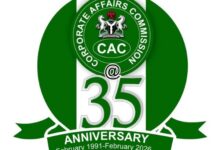 The already deplorable power situation in some parts of the country may worsen as the workers in the power sector have threatened to stop the supply of electricity to the South-south and South-west regions by the end of the month.
The already deplorable power situation in some parts of the country may worsen as the workers in the power sector have threatened to stop the supply of electricity to the South-south and South-west regions by the end of the month.
Other grievances include the exploitation of Nigerians by electricity distribution companies who extort consumers without adequate supply of electricity.
The industrial action followed the expiration of the seven-day ultimatum issued by the Nigeria Labour Congress (NLC) and leaders of the National Union of Electricity Employees (NUEE) to the federal government and operators to address current power situation and the labour issues in the sector.
The ultimatum was issued by the leadership of the NLC state councils in Lagos, Oyo, Ogun, Osun, Ekiti, Ondo Edo, Akwa-Ibom, Bayelsa, Cross Rivers, Delta, Kwara and Kogi at the end of its meeting with the leadership of NUEE in Akure, Ondo State, last Wednesday.
the unions observed with dismay the ongoing actions by the investors in the power sector to de-unionise workers of the sector. It called on the federal government to immediately call the investors to order, stating that the above action constitutes a constitutional breach to the effect that all employers are expected by the provision of the law to allow unionisation of its workforce..
It equally frowned at the “exploitation of Nigerian masses by the buyers of the electricity distribution companies who deliberately suffocated the Nigerian people by an unholy extortion by charging fees without supply.”
It listed the power companies to include, Ibadan Electricity Distribution Company (IBEDC), Benin Electricity Distribution Company (BEDC), Port Harcourt Electricity Distribution Company (PHEDC), Ikeja Electricity Distribution Company (IEDC), Eko Electricity Distribution Company (EEDC), Jos Electricity Distribution Company (JEDC), Transcorp Electricity Ugheli, Egbin Power Plc-Kerl, Geregu Power Plc and Olorunshogo Power Plc.
This followed the disclosure that the Nigerian power generation is coming up again with the current generated megawatts (MW) hitting over 4,000 as at Tuesday.
Under the rules which are in exercise of the powers conferred on the NERC by section 96 of the Electric Power Sector Reform Act 2005.
The statement, which was signed by NERC’s Head of Public Affairs, Dr. Usman Arabi, in Abuja, also explained that existing arrangements in the industry would however be maintained save to the extent that they are modified by the order of the commission.
The objectives of the rules are to establish a framework to govern trading arrangements during the interim period when Power Purchase Agreements (PPAs) between the privatised Power Holding Company of Nigeria (PHCN) successor generation companies and Nigerian Bulk Electricity Trading Plc (NBET), The country’s generation capacity picked up and got to 4105.90MW.
Daniel explained that a breakdown of how generated capacity was shared showed that the industrial nerve-centre of Lagos and environs got the highest with a maximum load allocation of 985.0MW while the maximum load allocated to Abuja through Katampe and Gwagwalada power line was 410.80MW.










